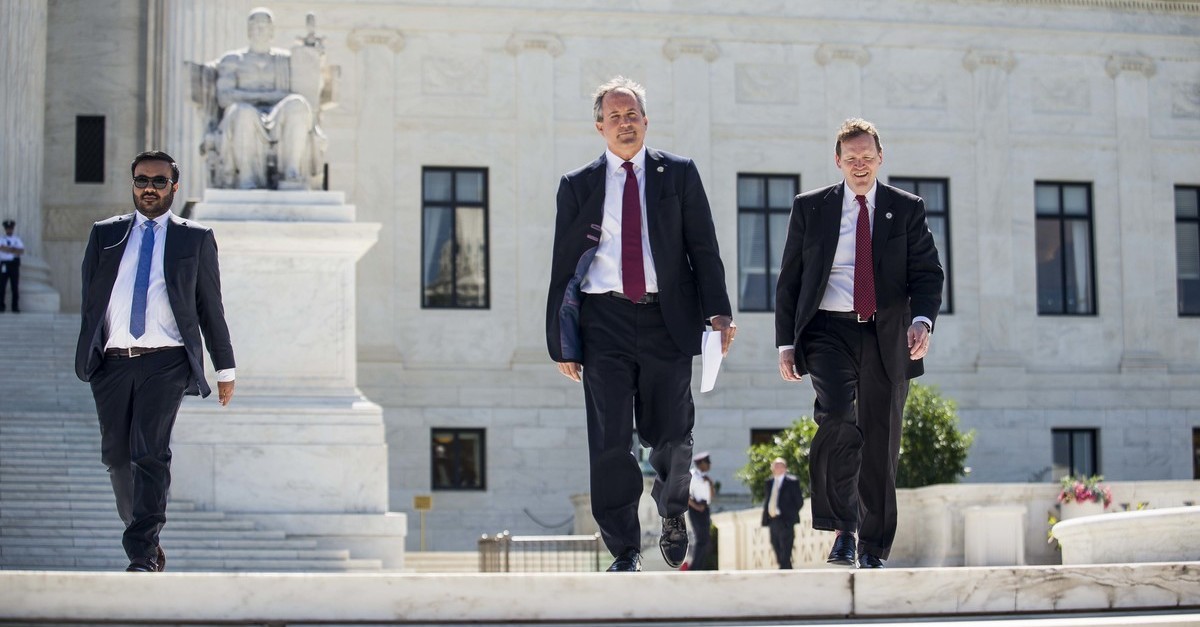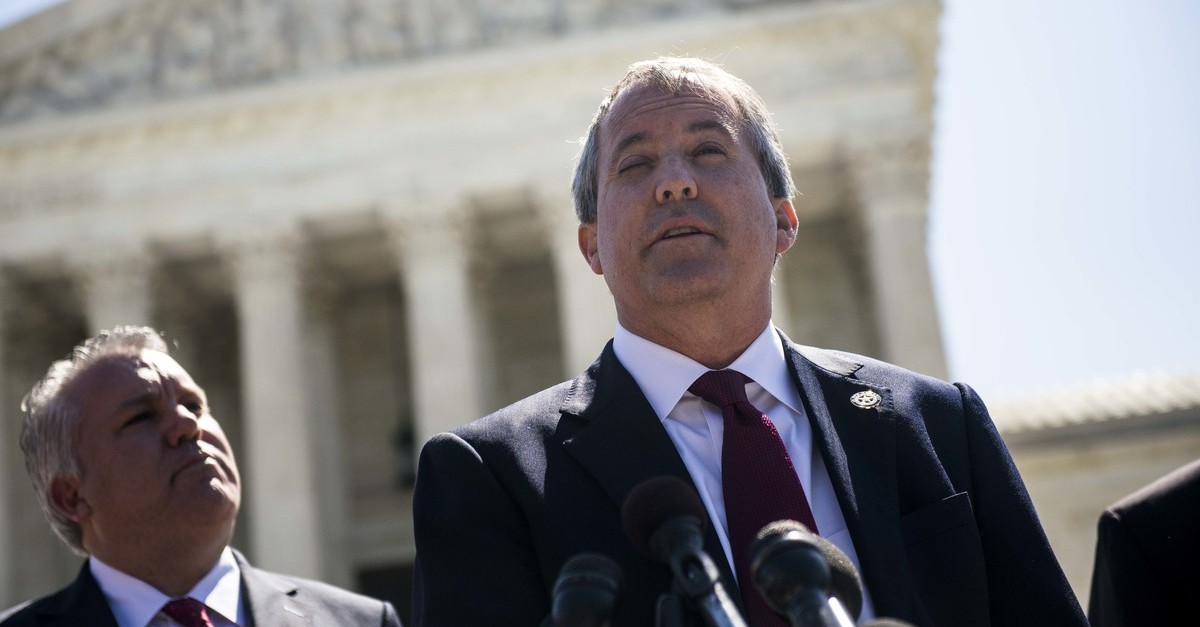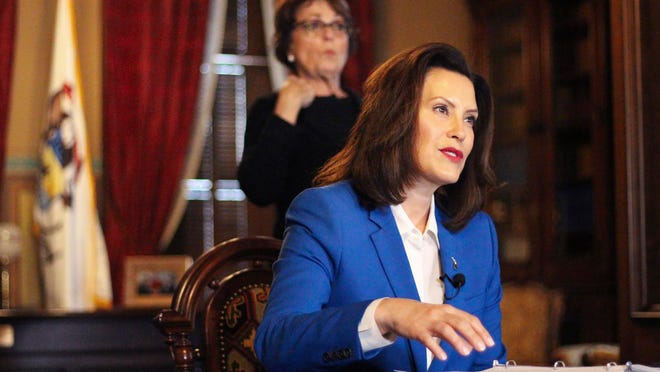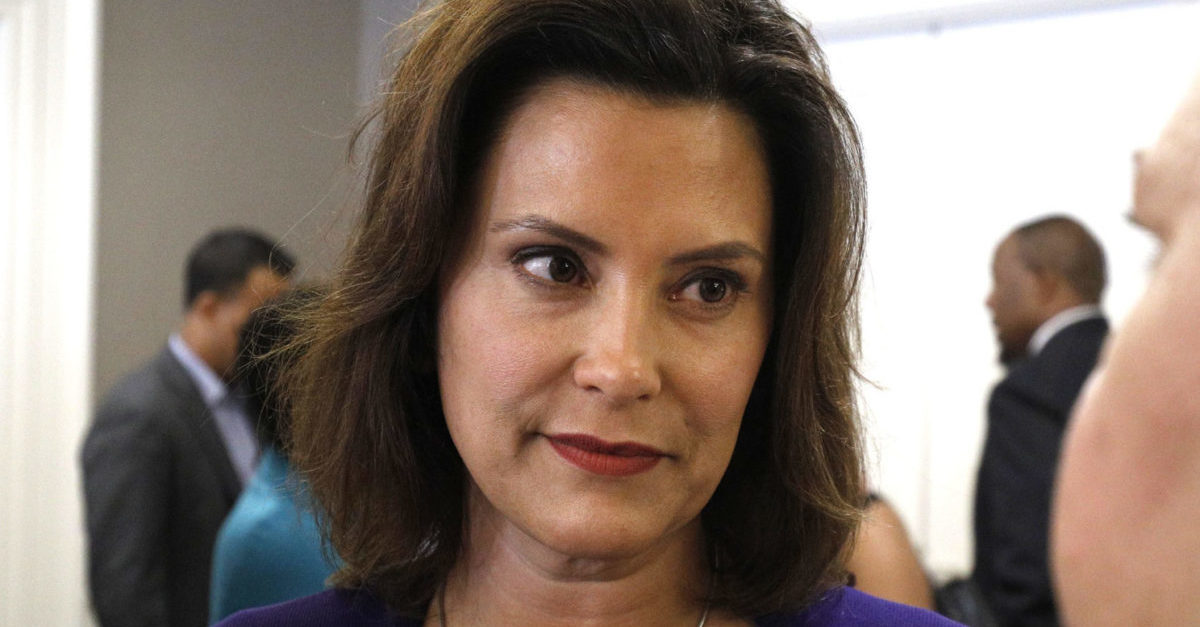Court Slaps Down Drilling Ban in Big Win for Trump and Fracking Interests
by Colin Kalmbacher | 2:58 pm, March 27th, 2020
The White House notched a significant victory against environmental advocates on Friday after a federal court determined the Bureau of Land Management (BLM) did not violate the law by tossing a regulation against oil and gas exploration on public and tribal lands.
The U.S. District Court for the Northern District of California rubbished concerns leveled by the State of California and the Sierra Club in two separate but related lawsuits that BLM’s 2017 abandonment of a 2015 rule ran afoul of the Administrative Procedure Act (APA), National Environmental Policy Act (NEPA), and Endangered Species Act (ESA).
Specifically keyed toward hydraulic fracturing, or fracking–a process which uses various combinations of water, sand and chemicals to create and enlarge existing fractures underground–the 2015 rule was intended “as a much-needed complement to existing regulations designed to ensure the environmentally responsible development of oil and gas resources on Federal and Indian lands, which were finalized nearly thirty years ago, in light of the increasing use and complexity of hydraulic fracturing coupled with advanced horizontal drilling technology,” according to the prior administration’s BLM.

The court summed up the now-discarded Obama era regulation:
First, the 2015 Rule updated…well construction and testing requirements to ensure best practices for casing and cementing wells and “protect and isolate all usable water zones, lost circulation zones, abnormally pressured zones, and any prospectively valuable deposits of minerals.” Second, operators were required to use storage tanks instead of pits to “reduce…the potential risk to surface and groundwater resources,” as well as provide environmental benefits for wildlife. Third, the 2015 Rule provided greater oversight and information to BLM by requiring that operators seek approval for all hydraulic fracturing operations, instead of only “non-routine” operations. Finally, operators were required to disclose the chemical additives used for hydraulic fracturing by submitting the information to an independent organization, FracFocus, which had an existing database and provided “the quickest, most cost-effective way to make the information public.”
Litigation swiftly followed–initiated by states whose politicians have been politically captured by the oil and gas industry. Then, in 2017 the Trump administration quickly moved to rescind the rule.
First, President Donald Trump issued an executive order calling on all administrative agencies to reconsider rules and regulations related to the production of energy. The next day, then-secretary of the Interior Department Ryan Zinke dutifully complied by issuing an order which claimed “[the 2015 Rule] is unnecessarily duplicative of state and some tribal regulations and imposes burdensome reporting requirements and other unjustified costs on the oil and gas industry.”
The plaintiffs collectively argued that BLM had violated environmental rules under NEPA, failed to consider the rule change’s impact on wildlife under the ESA and that the basic decision to alter the rule was “arbitrary and capricious.”
Per the Supreme Court:
Normally, an agency [decision] would be arbitrary and capricious if the agency has [1] relied on factors which Congress has not intended it to consider, [2] entirely failed to consider an important aspect of the problem, [3] offered an explanation for its decision that runs counter to the evidence before the agency, or [4] is so implausible that it could not be ascribed to a difference in view or the product of agency expertise.
Judge Haywood S. Gilliam Jr. tidily dismissed all of those concerns.
First, the judge found that “NEPA does not apply” to the facts of the case and easily ruled in BLM’s favor because the 2015 rule never actually took effect and therefore “the environmental status quo was not altered by” the Trump’s 2017 rule change.
The ESA decision relied simply upon taking BLM’s words at face value.
Judge Gilliam writes:
[T]he Court must review the entire administrative record, with a particular focus on the final representations BLM provided in the Repeal. BLM’s final position was that the Repeal would have no effect on threatened species on BLM lands, and the Court finds that there is a rational connection between this position and facts presented in the record.
As for the arbitrary and capricious charge, Gilliam accepted the administration’s argument that they had been motivated by a desire to cut enforcement costs for the agency and pointed to the Interior Department’s “cost-benefit analysis” to support the ruling.
“In summary, BLM met the requirement of providing a ‘reasoned explanation’ for why it is changing course after the nearly five-year long extensive rulemaking that resulted in the 2015 Rule,” the order notes. “Although BLM could have provided more detail, it did enough to clear the low bar of arbitrary and capricious review, and that is all the law requires.”
[image via via NICHOLAS KAMM_AFP via Getty Images]





















